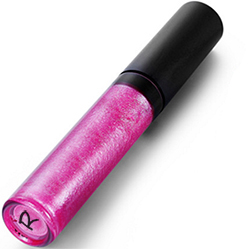|
 “Mom, Mattie stole my frosting flavored lip gloss,” said Riley, my seventh grader. “Mom, Mattie stole my frosting flavored lip gloss,” said Riley, my seventh grader.
“Oh, no. I’m sorry.” I said as I sat beside her on her bed.
“You know how I put an R on everything? In Math, I saw my R on the end of the lip gloss she was using. So, I said, ‘Hey that’s my lip gloss.’ She said ‘What?’ I said ‘See that R on the end? It proves it’s mine.’ She said ‘No it doesn’t.’ Then I held my hand out.” She demonstrated wiggling her palm up. “When Ms. Granada looked at us, Mattie put it in her pocket. Mom, she still has it. I’m so mad at her. I don’t know what to do. No one’s ever stole my stuff before. What should I do?”
Teaching Riley
I took this opportunity to teach Riley how to handle conflict. To do this I had to keep my emotions and thoughts about what happened to myself. And, not say anything negative about Mattie.
I empathized with her feelings of being hurt, angry, and victimized. This helped her separate her emotions from the problem.
It was important to Riley to get her lip gloss back and to talk to Mattie in person; she didn’t want any drama, or school punishments. She understood that meant not talking about it to anyone.
I explained that the words she uses will determine the outcome to a large degree. And, that she needed to give Mattie an easy way out. She practiced, and planned when and where she would to talk to Mattie with no one else around.
How it played out.
The next day, Riley was waiting for me when I got home. “Hey, how are you?”
“Mom, I talked to Mattie, just like we practiced. I said, ‘We both know it’s my lip gloss. I’d like it back. Please give it to me.’ She said, ‘I can’t. I don’t have it anymore. My mom found it. I got grounded. I’m buying you a new one.’ I said, ‘Thanks.’ She nodded and walked away.”
“You were gracious and honest. I’m proud of you. How do you feel?”
“I was scared when I saw Mattie. She looked at me weird. I knew I had to say it. I feel better. And relieved. I think she does, too.”
I reached over and hugged her, “You are a great kid!”
|